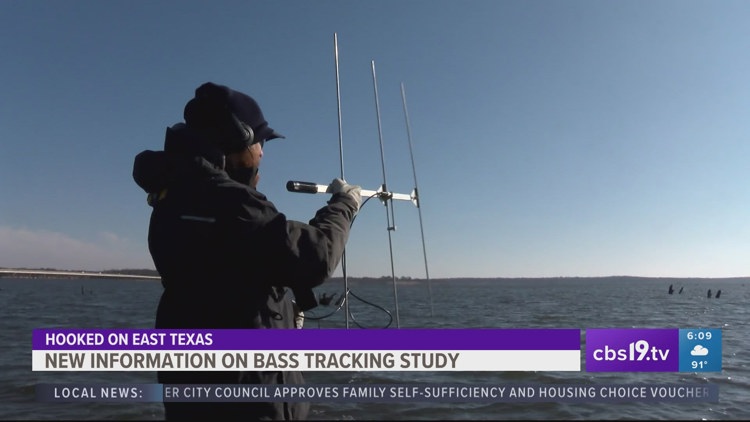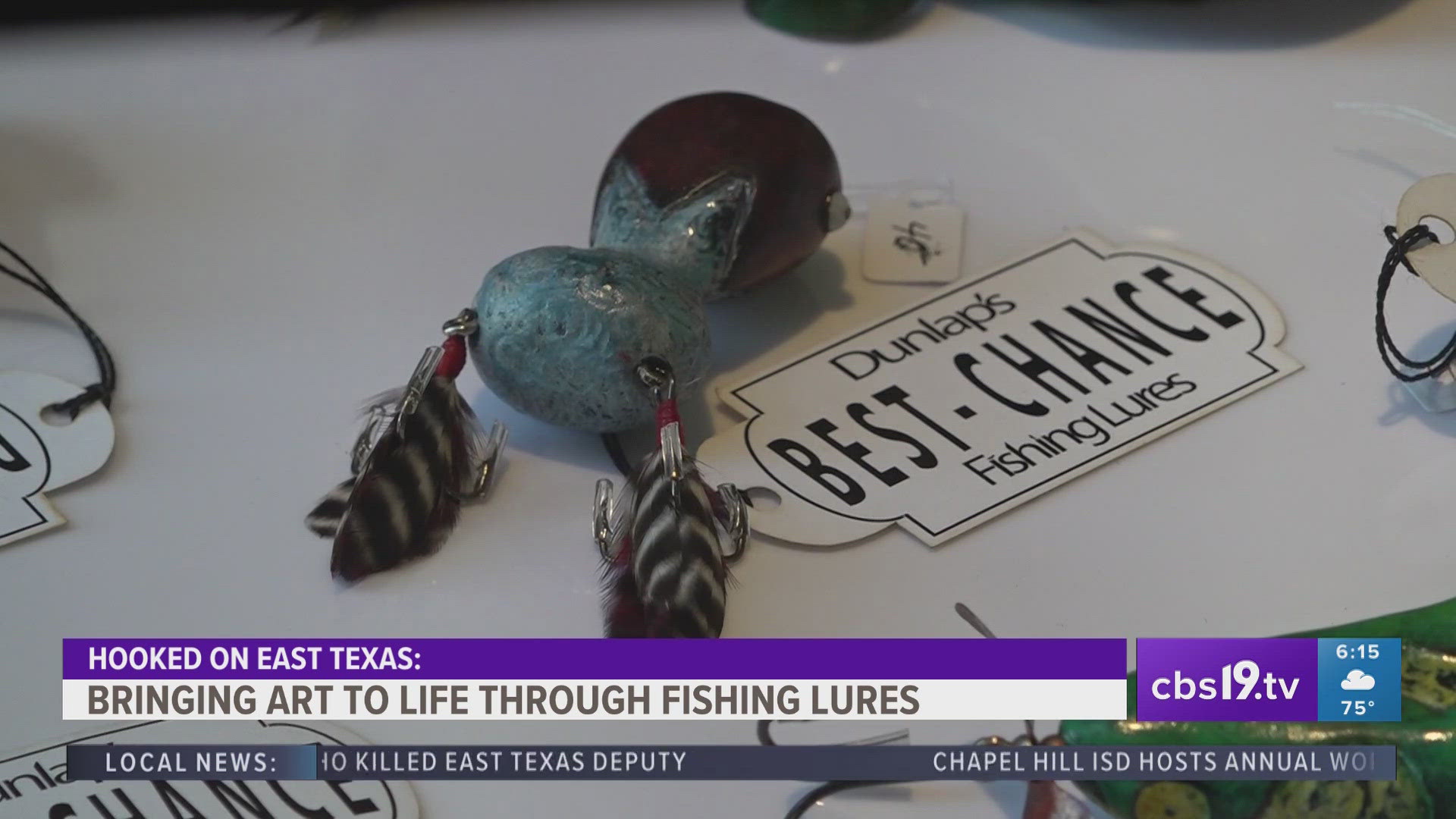TYLER, Texas — New information has been released following a groundbreaking bass tracking study on two East Texas lakes.
In this week's Hooked on East Texas, we reveal what the study found it might surprise you.
Jake Norman, inland fisheries division Tyler district supervisor, says there was one finding that really stood out.
“So the biggest take home, I think we found I really liked to highlight both Lake Fork and Toledo Bend is how small of an area these fish occupied," Norman said.
Texas Parks and Wildlife biologists started tracking fish movements in 2020 using telemetry. Anglers reported catching fewer fish at two of the state most popular bass lakes.
“So that was one of the big drivers for these studies in the very beginning," said Norman.
Norman was one of two district supervisors in East Texas to help lead the study.
Biologists caught more than three dozen largemouth bass on Lake Fork and nearly four dozen on Toledo Bend. The fish, all between 16-24" long, were released unharmed back into the lakes.
“Why is it may be more difficult for you to catch them?" said Norman. "So, we have great seasonal habitat, utilization movements, all of that to show, in this case that these fish are pretty much doing what the anglers expect them to be doing most of the time."
At the end of the two-year study, biologists found that largemouth fish are essentially homebodies and don’t move very far.
“So where these fish were found the bulk of the time, where they spent the most of their life throughout the course of this year, it was under 12 acres for Lake Fork, a 12-acre area and this is two-and-a-half-acre pond," Norman said "So just picture that multiplied a few more times. That's the entire area these fish were utilized, you know, occupying for the course of a year. And we found that year over year, I'm Toledo Bend again, a little bit larger, but very similar."
So if fish weren’t moving, then why weren’t they biting?
Biologists found that boat noise and other sounds can scare fish away.
“I think 59% of all of our fish reacted to the boat as we approached them,"" Norman said. "So well over half of all the fish. As I like to put this in angling terms, were aware of the angling presence, more alert, probably more difficult to catch before anybody ever dropped the trolling motor down," said Norman.
The TPWD now has data that shows bass populations aren’t declining. The fish are just more aware, maybe smarter, making them harder to catch. And as long as the lake is healthy, the bass are right where they should be just waiting for food.
“A lot of times they can get fat and lazy, sitting in their rocking chair waiting for the Cheetos to come to them for lack of better words, but so they just don't have to move a lot in a lot of our our lakes with the habitat, they have the structure they have the forage that is everywhere," said Norman. "It's a lot easier for these fish to occupy a small home and let the food come to them."
At the end of the day, the study showed the best fishing spots are the usual places. This study could help improve those spots by bringing more fish to those areas.



